As a unique market opportunity is discovered, the Indian forage producer Punjab Silage Company contacts Orkel in order to secure cutting-edge technology in the field of high-density silage conservation. Soon, the business operations turn profitable, not only for Punjab Silage Company’s business, but also for each individual end user.
Maize Silage for Indian Dairy Farmers
Punjab Silage Company is a forage producer based in Samrala City, located in the Indian state of Punjab. The company was founded in June 2017, and currently works as a forage producer baling maize silage before marketing the bales to Indian dairy farmers. Using only the best silage and optimal storage solutions, the company is proud to promote their silage bales using descriptions such as “high nutritional values” and “long shelf life”.
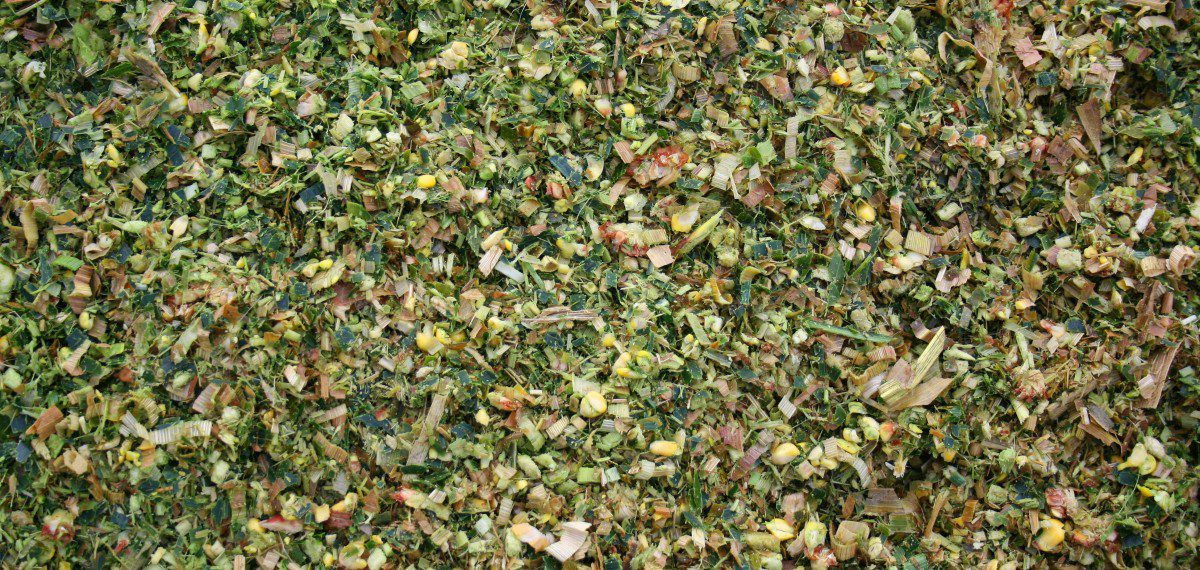
Mr. Gupta and Mr. Dogra
To deliver this first-class silage, the company is managed by professionals with varying agricultural backgrounds. Mr. Sandeep Gupta, one of the partners in Punjab Silage Company, has significant field experience after running a business handling agricultural chemicals and inputs like seeds and fertilizers. Mr. Sumit Dogra, also a partner, has extensive experience in sales of forage seeds through working with reputed global companies.
Mr. Gupta explains: “We provide nutritious silage at the doorstep of Indian dairy farmers by monitoring the whole value chain from hybrid selection to silage bale delivery.”
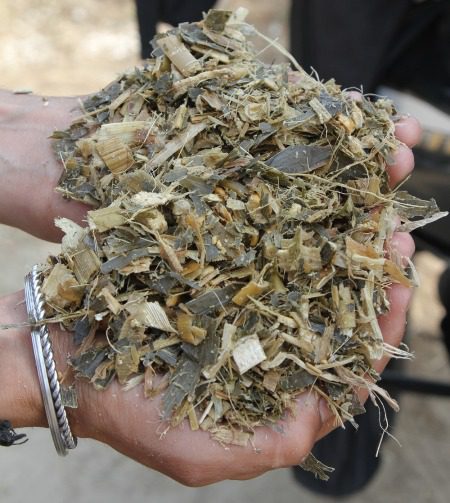
Tremendous Growth in Silage Production
The state of Punjab is considered to be one of the most progressive dairy- and agricultural farming states in India. Despite the state of Punjab constituting only 1.5% of India’s total geographical area, Punjab is one of the most fertile regions on earth, contributing 14% of total food grain production in the country! Silage is one of many agricultural products currently experiencing tremendous growth, however, reviewing the Indian silage market at the turn of the century, the story was quite different.
Limited Access to High-Quality Maize Silage
Punjab Silage Company was founded during a time where high-quality maize silage was hard to come by. Most Indian farmers were highly price-sensitive and preferred to purchase low-quality fodder alternatives, in other words, there was no focus on cattle performance.
Additionally, it was estimated that approximately 98% of cultivable land in the state of Punjab was already cultivated. As time passed, it was impossible to significantly increase the area plowed.
Limiting Food Losses
The only way to increase profitability within the state was to focus on limiting food losses and optimizing agricultural production. Based on this information, the soon-to-be management of Punjab Silage Company identified a market opportunity; Developing local agriculture through high-quality silage.
The “domino effect” of bad silage conservation:
- Silage is exposed to air
- Yeast start to grow
- Yest degrade residual sugars/lactic acid
- Highly degradeable nutrients are lost
- Heat is produced – pH increases
- Bacteria grow/massive spoilage
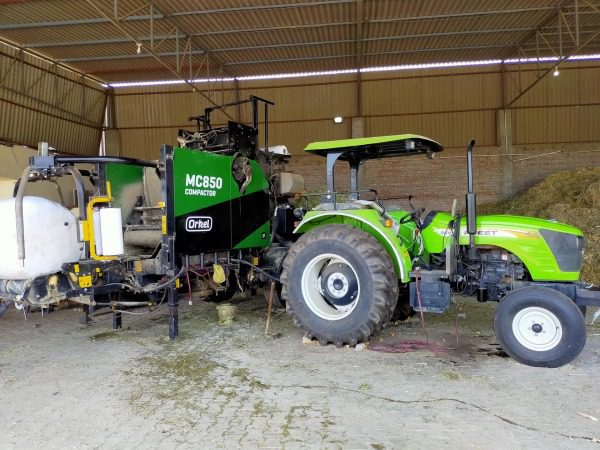
A Perfect Pair: High Quality Raw Material and High-Density Baling
Due to the low silage quality on Indian markets, the market opportunity involved specializing in producing highly nutritious silage for dairy cattle. The reasoning behind this market opportunity is simple; High nutrition values in silage significantly increases the yield and quality of cattle’s milk, increasing farmers’ profit. Punjab Silage Company started carving their role as a middleman; They would purchase forage from Indian farmers, bale it with the Orkel compactor, and sell the baled silage to dairy farmers in need of cattle feed.
Read more about: Round bales or silo?
The Best Forage
They quickly recognized this business as challenging, as it demands the management to be familiar with the business-oriented aspect of agriculture, the mechanical side of baling, and optimal transport- and storage solutions. Due to the complexity of their business model, the operation involved acquiring the best forage, the most powerful technology, and the most skilled staff.
Discovering High-Density Baling
After acquiring nutritious forage from handpicked local farmers and employing skilled staff from the agribusiness sector, Punjab Silage Company found themselves in need of baling equipment. “First we made a deal with a brand of feed balers,” explains Mr. Sumit Dogra, partner in Punjab Silage Company. “However, when doing online research, we discovered Orkel AS and the market of high-density baling.”
The Orkel MC850
Mr. Dogra and his colleagues contacted the Sales Department of Orkel to learn more about Orkel’s high-density baling technology. After several rounds of product specifications and carefully considering the financial gains, Punjab Silage Company placed an order for a MC850 Orkel compactor to arrive in time for the 2018 harvesting season.
Benefits of baling silage with high density
- Superior forage quality – higher milk yield
- Long shelf life
- Simplified logistics; easy handling and less demand of storage space
- Easy market access
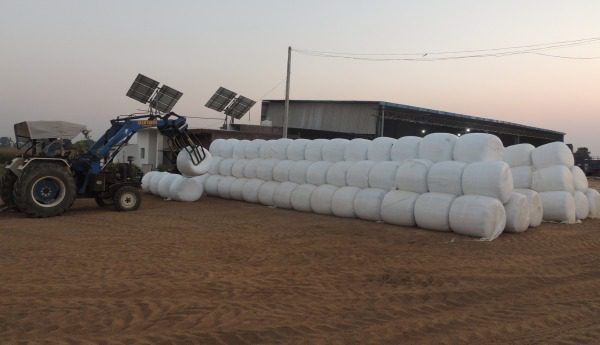
Growing Interest in Orkel Silage Bales
Since purchasing their MC850 compactor in 2018, forage producer Punjab Silage Company has baled more than 25,000 tons of maize silage. “There are no machines as sturdy and reliable as it [the MC850 compactor], and the properties of the final bale exceed our high expectations.” Mr. Dogra expresses. Furthermore, despite infamous for their price-sensitivity, the increasing number of repeat buyers demonstrate Indian farmers’ growing interest in Orkel silage bales.
Increased Profit with Orkel Bales
Mr. Dogra continues: “We’ve received plenty of feedback from our end customers saying that investing in our bales has increased their profitability!” This motivates the salesmen of Punjab Silage Company to continue crunching numbers in order to confirm the profitability of investing in nutritious silage bales.
20.000 Bales in 2020
When asked about the future of Punjab Silage Company, both Mr. Gupta and Mr. Dogra are confident and optimistic. Currently, they are content with both the performance of their compactor, their market share and their field of expertise. Their latest goal consists of baling 20,000 tons of maize silage during 2020, which Mr. Dogra can inform that they are on schedule to achieve! Despite satisfaction with their current business, neither Mr. Gupta nor Mr. Dogra exclude the possibility that Punjab Silage Company might expand their business in the near future: “Recently, we have discussed how to utilize our compactor over a longer period, so Orkel shouldn’t be surprised if we contact them once we have a strategy mapped out.”
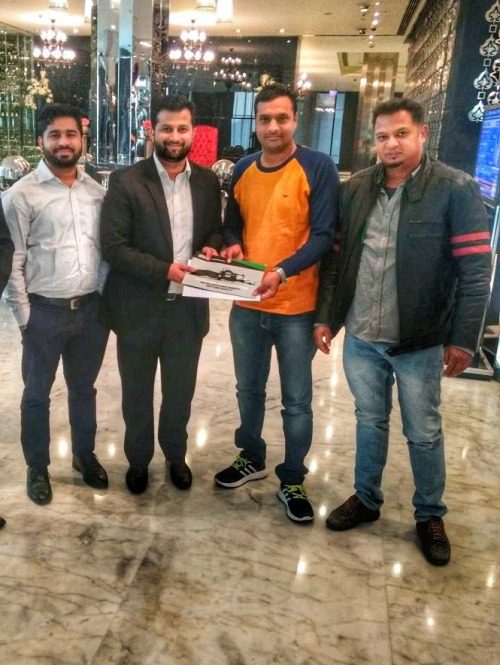
Orkel is looking forward to future collaborations with Punjab Silage Company!